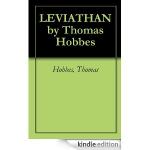|
This section contains 4,810 words (approx. 17 pages at 300 words per page) |

|
SOURCE: "Hobbes's Leviathan," in A History Western Philosophy, and Its Connection with Political and Social Circumstances from the Earliest Times to the Present Day, Simon & Schuster, 1945, pp. 546-57.
In the following essay, Russell examines the doctrines of Leviathan, noting that Hobbes's main limitations are his fear of anarchy, overemphasis on the national interest, and misunderstanding of relations between states.
Hobbes (1588–1679) is a philosopher whom it is difficult to classify. He was an empiricist, like Locke, Berkeley, and Hume, but unlike them, he was an admirer of mathematical method, not only in pure mathematics, but in its applications. His general outlook was inspired by Galileo rather than Bacon. From Descartes to Kant, Continental philosophy derived much of its conception of the nature of human knowledge from mathematics, but it regarded mathematics as known independently of experience. It was thus led, like Platonism, to minimize the part played by perception...
|
This section contains 4,810 words (approx. 17 pages at 300 words per page) |

|


